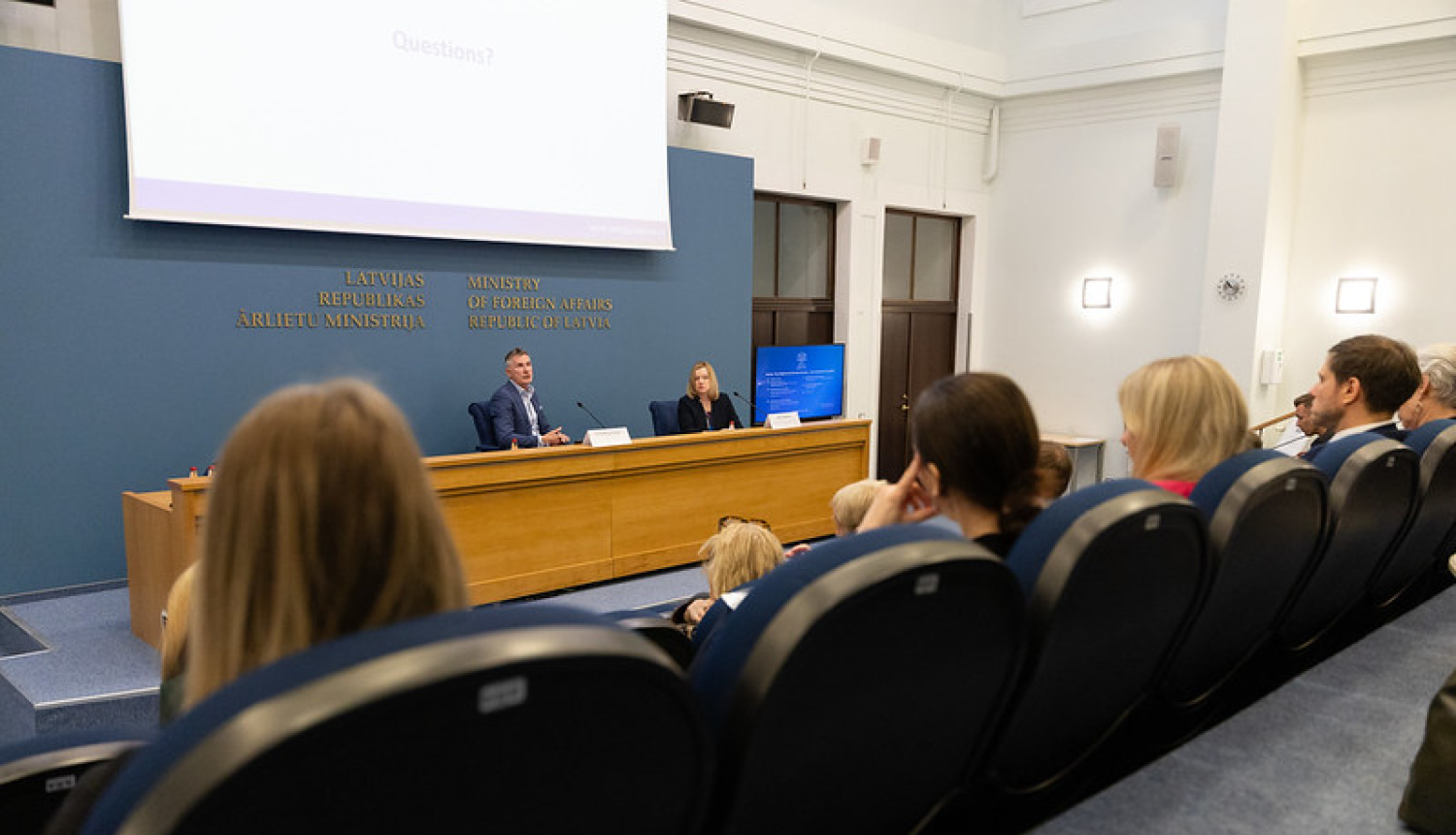On 23 May 2025, the Ministry of Foreign Affairs hosted an international seminar, “Due Diligence and Circular Economy – from Standards to Practice” for the representatives of the OECD National Contact Points for Responsible Business Conduct from the Baltic states and Nordic countries (NB8), alongside other stakeholders.
The seminar raised awareness of the importance of due diligence and circular economies in business operations. Due diligence and circular economies are particularly important in business as they are binding on anyone who wants to remain competitive in an economy focused on sustainability and resource saving. Adherence to responsible business standards is increasingly demanded by both the public and economic operators, as they are aware of the negative environmental impact of companies posing a threat to human rights. Sustainability-oriented companies need to identify and address the negative environmental and human impacts of their activities or those of their business partners.
An independent representative of the Netherlands National Contact Point for responsible business, Rutger Goethart, shared his experience and knowledge of responsible business conduct from the perspective of a company, focusing on responsible management of the supply chain.
In her presentation, the senior researcher at the Institute of Energy Systems and Environment of the Faculty of Science and Technology of Riga Technical University, Ilze Vamža, explained the aspects of quantification and assessment of sustainability.
CEO and co-founder of the PLŪKT tea brand, Māra Lieplapa, introduced the participants to her company and its perspective of sustainability and a heedful attitude towards environment, highlihting the need for raising standards in traditional industries.
The founder and CEO of Mitigate, Arvis Zeile, presented an outline of the company’s ESG (Environmental, Social and Governance) platform that enables an easy input, collection and analysis of data in compliance with the requirements of the Corporate Sustainability Reporting Directive (CSRD).
The Latvian National Contact Point for Responsible Business Conduct (LVNCP) is a collegial body comprising experts who represent the Ministry of Foreign Affairs (performs the functions of a Secretariat), the Ministry of Economy, the Ministry of Finance, the Ministry of Education and Science, the Ministry of Justice, the Ministry of Welfare, the State Labour Inspectorate, the State Chancellery, the Latvian Confederation of Free Trade Unions, the Employers’ Confederation of Latvia, and the Institute for Corporate Sustainability and Accountability.
National Contact Points for Responsible Business Conduct (NCPs for RBC) are agencies established in their respective countries by governments aligned with the OECD Guidelines for Multinational Enterprises. The NCPs are a non-judicial grievance mechanism for resolving disputes between multinational companies and communities or individuals in cases of alleged breaches by a company of one or several Guidelines recommendations. The main contribution of a GNP is to provide the applicant and the enterprise in a specific case with a platform for talks and voluntary mediation in order to prevent or minimise the harmful effects caused to society or environment by the activities of a particular enterprise.
See more: The OECD Guidelines for Multinational Enterprises on Responsible Business Conduct and the National Contact Points as a support mechanism for their implementation.





